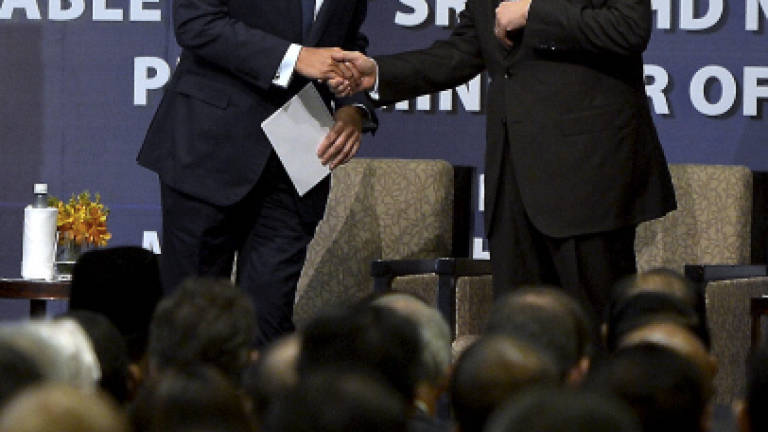Zahid: Tackling extremism acts, especially suicide bombers is imperative (UPDATED)

KUALA LUMPUR: International counter-terrorism agencies should seek the source of influence and reach into the minds of extremists to prevent a resurgence of radicalism.
Deputy Prime Minister Datuk Seri Ahmad Zahid Hamidi said the policy in the war against terror should not merely be confined to battles on the ground.
"It also includes active engagement in de-radicalisation programmes and to counter extremist ideas and ideologies with proper guidance and sound religious principles," he said in presenting Malaysia's ideas during the Ministerial session at the International
Conference on De-radicalisation and Countering Violent Extremism 2016 here yesterday.
The patterns of a terrorist's action, he said, often depend largely on his or her state of mind or mental and emotional disposition.
"We need to go to the source of the influence. Strategies which we have employed, while largely offensive tactically, must also include outreach-type programmes to counter extremist ideologies at its source," he said.
Ahmad Zahid also called on international enforcement agencies to invest in programmes related to non-lethal rehabilitation and de-radicalisation.
While the authorities may know "how" an extremist might act, he said it is important to explore "why".
"The 'why' brings us into a battle of minds, of emotions and of personal leanings," he said, adding that Malaysia employs a strategy that places importance on collective participation of all relevant entities in the de-radicalisation programmes.
Sharing the country's policy in strengthening and enhancing legal frameworks to address the threat of terrorism, Ahmad Zahid said Malaysia still needs to apply preventive solutions in addition to punitive action.
"We have enacted a preventive law, the Prevention of Terrorism Act 2015 or POTA, and formulated an integrated rehabilitation module for those detained under this Act," he added.
He said the module covers various aspects such as social skills, self-management, patriotism, financial management and psychology.
Ahmad Zahid also stressed that reintegration for released detainees should not be overstated.
"When detainees are released, they (detainees) may still be ideologically and psychologically vulnerable. We need to ensure that the risk of being radicalised again (for detainees) is eliminated or greatly reduced during reintegration," he added.
He said a new and more comprehensive approach is needed in view of the constantly changing nature of terrorism and radical activities.
He further noted rehabilitating terrorists and extremists is a dynamic process and it means that our methods and approaches must be constantly reviewed and improved.
"It is because they (terrorist) could disguise as anyone.They could move around as tourists, office workers, ordinary people, factory workers, students and even preachers," he added.
He then pointed out that the materials they used to make bombs could be sourced even from the very vicinity they planned to attack.
"The manual to make a deadly explosive can also be obtained on-line," he said.